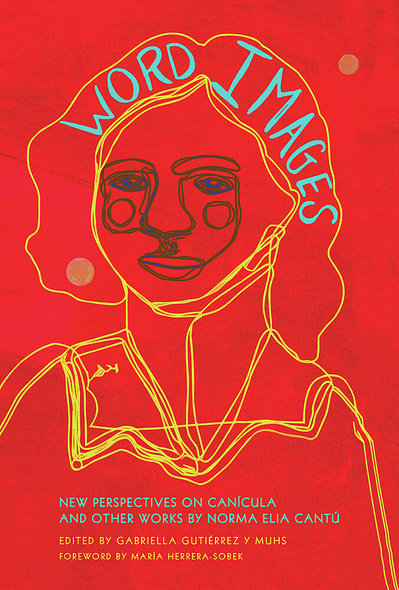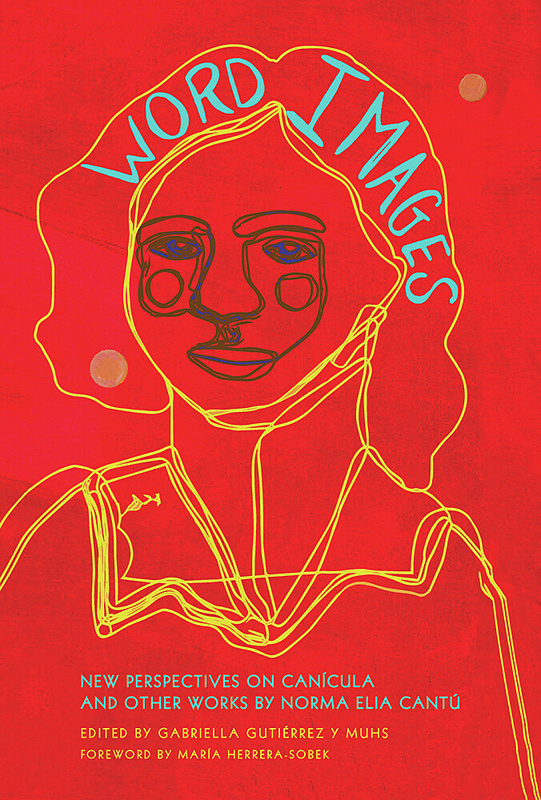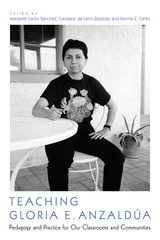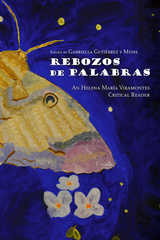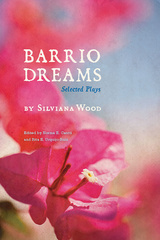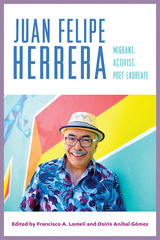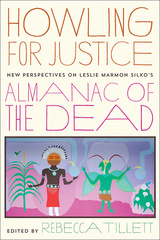Word Images
New Perspectives on Canícula and Other Works by Norma Elia Cantú
Edited by Gabriella Gutiérrez y Muhs; Foreword by María Herrera-Sobek
The University of Arizona Press
This collection of critical essays unveils for the first time Norma Elia Cantú’s contribution as a folklorist, writer, scholar, and teacher. Word Images unites two valuable ways to view and use Cantú’s work: Part 1 comprises essays that individually examine Cantú’s oeuvre through critical analysis. Part 2 is dedicated to ideas and techniques to improve the use of this literature by teachers and professors, with a particular focus on tools for using Canícula.
Contributors:
Steven W. Bender
Aurora Chang
Vanessa Fonseca
Gabriella Gutiérrez y Muhs
María Herrera-Sobek
Ellen McCracken
María Esther Quintana Millamoto
Aldo Ulisses Reséndiz Ramírez
Rose Rodríguez-Rabin
Jesús Rosales
Carlos Sibaja García
María Socorro Tabuenca
Juan Velasco
Contributors:
Steven W. Bender
Aurora Chang
Vanessa Fonseca
Gabriella Gutiérrez y Muhs
María Herrera-Sobek
Ellen McCracken
María Esther Quintana Millamoto
Aldo Ulisses Reséndiz Ramírez
Rose Rodríguez-Rabin
Jesús Rosales
Carlos Sibaja García
María Socorro Tabuenca
Juan Velasco
A significant contribution to Chicana and Chicano literature.’—Amelia María de la Luz Montes, co-editor of María Amparo Ruiz de Burton: Critical and Pedagogical Perspectives‘A strong collection that demonstrates the complexity and significance of Cantú’s work to the fields of folklore studies, literary criticism, and ethnography.’—Cristina Herrera, author of Contemporary Chicana Literature: (Re)Writing the Maternal Script
Gabriella Gutiérrez y Muhs is a professor of modern languages and women and gender studies at Seattle University, where she is also the director for the Center for the Study of Justice in Society. Gutiérrez y Muhs is the author or editor of several books, including Rebozos de Palabras: An Helena María Viramontes Critical Reader and first editor of Presumed Incompetent: The Intersections of Race and Class for Women in Academia.
María Herrera-Sobek
Acknowledgments
Introduction. Norma Cantú’s Frontera: Exile, the Law, Space, Hybridity, and a Little Poetry
Gabriella Gutiérrez y Muhs
Part I. Critical Essays
Hybridity and the Space of the Border in the Writing of Norma Elia Cantú
Ellen McCracken
Community and Exile in Norma E. Cantú’s Canícula
Jesús Rosa les
Norma E. Cantú: From Chicana/Fronteriza Writer and Critic to Public Intellectual
María Socorro Tabuenca
Snapshots of Law and Life in the Midcentury Texas Borderlands
Steven W. Bender
Images, Identities, and Realities in Romance of a Little Village Girl (1955) by Cleofas Jaramillo and Canícula: Snapshots of a Girlhood en la Frontera (1995) by Norma E. Cantú
Van essa Fons eca
A Chicana Daughter’s Blues: Canícula: Snapshots of a Girlhood en la Frontera
María Esther Quintana Millamoto, translated by Aldo Ulisses Reséndiz Ramírez, María Esther Quintana Millamoto, and Adrian Ortega
Word Images: An Interview with Norma Elia Cantú
Gabriella Gutiérrez y Muhs
Part II. Canícula Te aching Methodologie s
Cantú’s Decolonial Imagination Through the Looking Glass
Aldo Uliss es Reséndiz Ram írez
The Hidden Curriculum of Canícula: Critical Educational Lessons in Becoming a Mujer
Aurora Chang
The Alternative Lives of Azucena in Norma Elia Cantú’s Canícula
Carlos Sibaja García
A Discourse of Norma E. Cantú’s Canícula: Snapshots of a Girlhood en la Frontera and the World of Nepantla y Nepantlera
Rose Rodríguez-Rabin
Canícula: Snapshots of Interrelationality, Consciousness, and Multiple Selves
Juan Velas co
Contributors
Index

